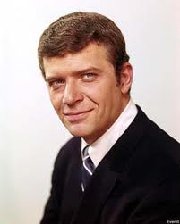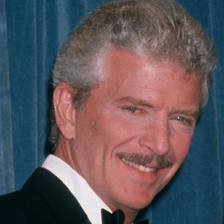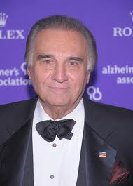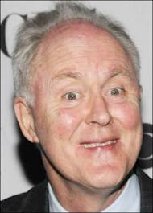This unique bear has an unusually long tongue that is uses to feed on honey and insects.
The tongue, measuring an average of 8-9 inches, is especially impressive when we consider that the average human tongue is less than half that length (averaging around 3.8 inches) and the World Record for the longest dog tongue is only 4.5 inches.
Bears are carnivoran mammals of the family Ursidae (/ˈɜːrsɪdiː, -daɪ/). They are classified as caniforms, or doglike carnivorans. Although only eight species of bears are extant, they are widespread, appearing in a wide variety of habitats throughout most of the Northern Hemisphere and partially in the Southern Hemisphere. Bears are found on the continents of North America, South America, and Eurasia. Common characteristics of modern bears include large bodies with stocky legs, long snouts, small rounded ears, shaggy hair, plantigrade paws with five nonretractile claws, and short tails.
While the polar bear is mostly carnivorous, and the giant panda is mostly herbivorous, the remaining six species are omnivorous with varying diets. With the exception of courting individuals and mothers with their young, bears are typically solitary animals. They may be diurnal or nocturnal and have an excellent sense of smell. Despite their heavy build and awkward gait, they are adept runners, climbers, and swimmers. Bears use shelters, such as caves and logs, as their dens; most species occupy their dens during the winter for a long period of hibernation, up to 100 days.
Bears have been hunted since prehistoric times for their meat and fur; they have also been used for bear-baiting and other forms of entertainment, such as being made to dance. With their powerful physical presence, they play a prominent role in the arts, mythology, and other cultural aspects of various human societies. In modern times, bears have come under pressure through encroachment on their habitats and illegal trade in bear parts, including the Asian bile bear market. The IUCN lists six bear species as vulnerable or endangered, and even least concern species, such as the brown bear, are at risk of extirpation in certain countries. The poaching and international trade of these most threatened populations are prohibited, but still ongoing.
The English word "bear" comes from Old English bera and belongs to a family of names for the bear in Germanic languages, such as Swedish björn, also used as a first name. This form is conventionally said to be related to a Proto-Indo-European word for "brown", so that "bear" would mean "the brown one". However, Ringe notes that while this etymology is semantically plausible, a word meaning "brown" of this form cannot be found in Proto-Indo-European. He suggests instead that "bear" is from the Proto-Indo-European word *ǵʰwḗr- ~ *ǵʰwér "wild animal".[3] This terminology for the animal originated as a taboo avoidance term: proto-Germanic tribes replaced their original word for bear—arkto—with this euphemistic expression out of fear that speaking the animal's true name might cause it to appear. According to author Ralph Keyes, this is the oldest known euphemism.
Bear taxon names such as Arctoidea and Helarctos come from the ancient Greek ἄρκτος (arktos), meaning bear, as do the names "arctic" and "antarctic", via the name of the constellation Ursa Major, the "Great Bear", prominent in the northern sky.
Distribution and habitat
Extant bears are found in sixty countries primarily in the Northern Hemisphere and are concentrated in Asia, North America, and Europe. An exception is the spectacled bear; native to South America, it inhabits the Andean region. The sun bear's range extends below the equator in Southeast Asia. The Atlas bear, a subspecies of the brown bear was distributed in North Africa from Morocco to Libya, but it became extinct around the 1870s.
The most widespread species is the brown bear, which occurs from Western Europe eastwards through Asia to the western areas of North America. The American black bear is restricted to North America, and the polar bear is restricted to the Arctic Sea. All the remaining species of bear are Asian. They occur in a range of habitats which include tropical lowland rainforest, both coniferous and broadleaf forests, prairies, steppes, montane grassland, alpine scree slopes, Arctic tundra and in the case of the polar bear, ice floes. Bears may dig their dens in hillsides or use caves, hollow logs and dense vegetation for shelter.
If you want to read a whole lot more, go here: https://en.wikipedia.org/wiki/Bear
Mr. Food's Rise 'n Shine Omelet Cups...
- Preheat oven to 350 degrees F. Coat 6 muffin cups with cooking spray.
- In a large bowl, combine all ingredients; mix well then spoon into prepared muffin cups.
- Bake 20 to 25 minutes, or until eggs are set. Serve immediately.
On October 19, National Kentucky Day recognizes the 15th state to be granted statehood.
The Bluegrass State became the first to enter the union west of the Appalachian Mountains. Home to the Kentucky Derby, Fort Knox, and the birthplace of one the nation’s most beloved presidents, Kentucky is bordered by rivers on three of its four boundaries.
Musical roots run deep in Kentucky. There’s opportunity from ancient history to modern-day to explore all variety of music the state holds dear. Of course, it’s called The Bluegrass State for a reason!
When it comes to athletic pursuits, Kentuckians are skilled both on and off the court. The Kentucky Derby, one of the jewels of the Triple Crown, takes place in May every year in Louisville. Founded in 1875, the derby holds many traditions, including serving mint juleps.
On the court and the field, they keep up a fierce rivalry with their Hoosier neighbors. Basketball, in particular, has held a strong tradition in the state.
Daniel Boone blazed trails through Kentucky, and several state parks and sites bear his name. Along those paths are all the natural wonders of Kentucky. From the Mammoth Caves (they are mammoth because they’re the longest in the world) to the national forests, crystal clear lakes, and magnificent waterfalls.
HOW TO OBSERVE NATIONAL KENTUCKY DAY
Join National Day Calendar as we recognize Kentucky’s hidden treasures and natural beauty. Uncover tucked away places and find all Kentucky has to offer!
For a complete list of Kentucky State and National Parks & Historic Sites visit www.parks.ky.gov and www.nps.gov. Check out a few of the featured sites around the state below.
Abraham Lincoln Birthplace – Hodgenville
Cumberland Gap – Middlesboro
Mammoth Cave – Mammoth Cave
Boone Station State Historic Site – Lexington
Carter Caves State Resort Park – Olive Hill
E.P. Tom Sawyer State Park – Louisville
Perryville Battlefield – Perryville
Wickliffe Mounds State Historic Site– Wickliffe
MUSEUMS
Kentucky Derby Museum – Lousiville
Louisville Slugger Museum & Factory – Louisville
KMAC Museum – Louisville
Muhammad Ali Center – Louisville
Creation Museum – Petersburg
Kentucky Museum – Bowling Green
Civil War Museum – Bardstown
General George Patton Museum of Leadership – Fort Knox
Bluegrass Heritage Museum – Winchester
Kentucky Music Hall of Fame and Museum – Mt Vernon
The Lincoln Museum – Hodgenville
African American Heritage Center – Franklin














No comments:
Post a Comment